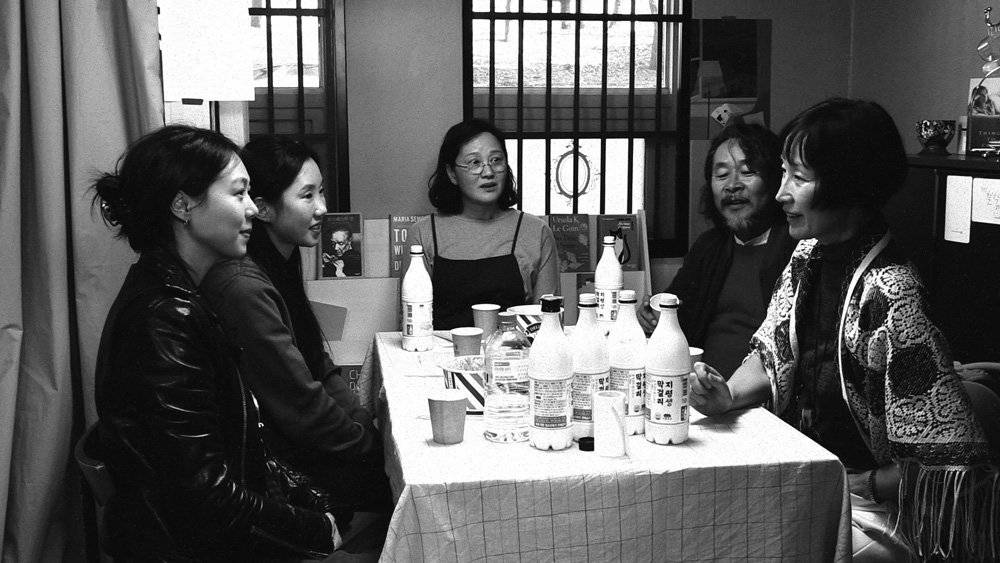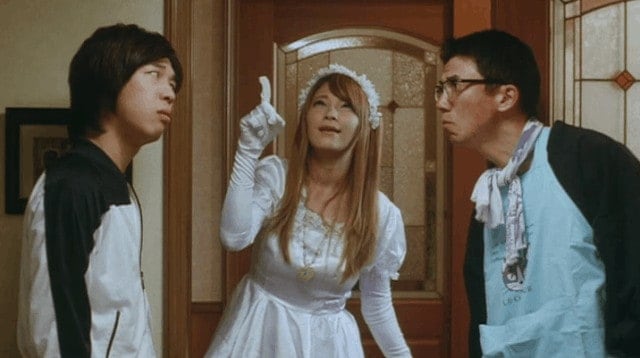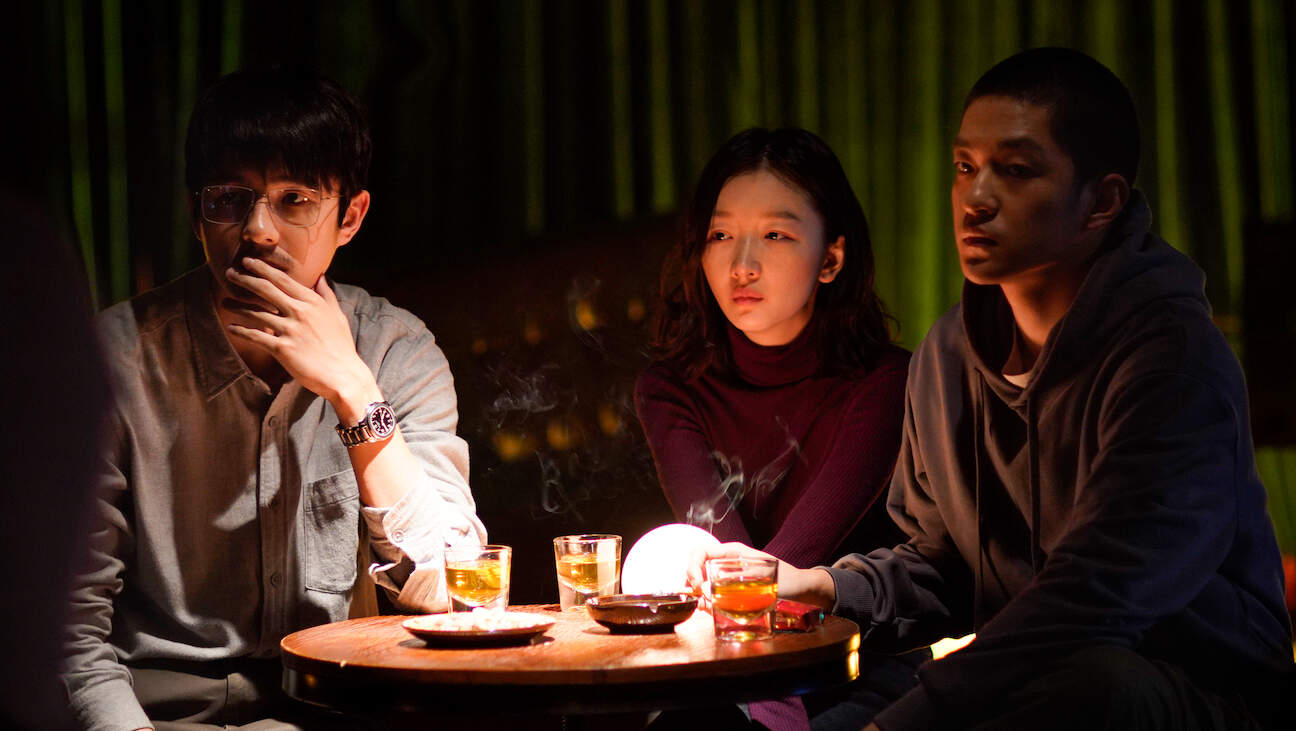What sets “Seoul Searching” apart from other teen-oriented films is it is a story not only about personal wounds, but also of a nation's deepest, lingering scars. Directed by Benson Lee, the movie, which won the the Best Narrative Feature Film at the 2015 Philadelphia Asian American Film Festival and was also an official entry to the Sundance Film Festival, cleverly and pointedly lays down the cultural intricacies of identity, both of the self and the nation-state.
“Seoul Searching” is based on Lee's real-life experience where young Koreans like him who grew up in other countries are made to rediscover and acquaint themselves with what it means to be Korean through a summer camp. It's a program developed by the South Korean government after its citizens emigrated to other countries following the war between South and North Korea in the 1950s.

The movie takes us back to the time when the camp was held in the 1980s, a period defined by the vibrant panoply of music, fashion styles and political ideologies. This diversity is evident in the teenagers who participate in the said camp, with black-leather donning Sid Park, pop star Madonna-wannabe Grace Park, military-trained Mike Song and a hiphop trio which shows off their rapping abilities at every moment they can. These are just the Koreans who hail from America, however. There is also Sergio, the Korean-Mexican who makes it his mission to sweet talk and charm all the ladies, and Klaus Kim, the upright, goal-oriented lad from Germany, who compared to the rest of the group, can actually understand and speak the Korean language.
At the onset, it will be easy to dismiss the movie as just another teen flick peppered with clichés, as nothing but a pastiche of films helmed by American director John Hughes, where there is the designated rebel, the jock, the nerd and the princess. To do so, however, would be a huge mistake, as “Seoul Searching” actually uses these stereotypes to break the stereotype about second-generation South Koreans who, by circumstances beyond their control, have to navigate the complex journey of migration and the damning causes and consequences of diaspora.
“Seoul Searching” effectively uses teenage angst as a plot device to trace the roots of division within Korean families, the aspiration to be a model minority as well as to unflinchingly, unapologetically bring to the fore the harmful culture of machismo and misogyny in South Korea. Lee, who also wrote the screenplay, introduces us to the kind of youth whose antipathy towards the world does not just stem from the usual confusion and anger that comes from adolescence, but from cultural differences, patriarchy, colonization and pressure to not be the Other in a society you are born into, but does not truly belong in.
This is crystallized in the struggles experienced by Sid, Sergio, Klaus and Mike but moreso with the search of Kris Schultz, another participant in the camp, for her Korean mom. Her mother has to give her up for adoption and hide her from her new family due to stigma and prejudice. The painful tension of diverging cultural beliefs, approaches to masculinity and styles of parenthood are on one hand, shown poignantly in the interaction and unlikely bond formed between Sid and one of the teachers in the camp, Mr. Kim.
The ensemble cast evinces ebullient chemistry. Jessica Van is sultry and feisty as Grace Park, the pastor's daughter who explores the world of raging hormones with Sid, played by Justin Chon. Albert Kong is angry and unbending as the military trainee who continues to view Japan as an enemy due to its past occupation of South Korea. The standouts here, though, are Rosalina Lee, who plays Schultz and Esteban Ahn, whose portrayal of Sergio is funny but not offensively comical.
The movie becomes most endearing though when Cho, Ahn and Teo Yeoo, who plays Klaus, are in one frame, their scenes of friendship, shenanigans and realizations lighting up the screen. Chon's storyline with In-Pyo Cha, who plays Mr. Kim, also deserves to be highlighted, as the two convey the multilayered pathos of generational and cultural divide between Korean parents and their kids.
The film establishes the East meets West intersection through colorful production, from the elaborate costume designs of Shirley Kurata to the energetic signature New Wave sound of the 1980s used by by Woody Pak. Pak is able to create a key moment bridging the two worlds through a reference to South Korea's very own “Madonna,” Kim Wan Sun.
This is also a film where the setting pushes the plot forward, with Lee using specific places in South Korea not solely for aesthetic or ornamental purposes, but for baring important opportunities for both confronting and healing wounds from historical conflicts. The DMZ or demilitarized zone and a traditional village serve as a meeting point, both literally and proverbially, where the participants of the camp realize that their perceived foes, students from Japan, are actually friends as they are also children of Korean parents who emigrated to Japan and where former enemies can become allies.
“Seoul Searching” is a cinematic elision of representation, with the angst and aspiration of young Korean immigrants honored and celebrated with the nostalgic jejune of pop culture. This is a film which succeeds in giving voice to rebels with a cause.
















